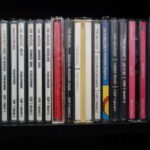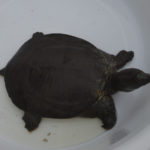| 番号 |
項目 |
英文 |
日本語訳 |
| 1 |
There構文 |
There is little milk left in the refrigerator. |
冷蔵庫には牛乳がほとんど残っていない。 |
| 2 |
間接疑問 |
Where do you think she is from? |
彼女はどこの出身だと思いますか。 |
| 3 |
疑問詞の識別(WhatとHowの使い分け) |
What do you think of the movie?
How do you like the movie? |
その映画をどう思いますか
その映画はいかがですか |
| 4 |
動作動詞と状態動詞 |
The church stands on the hill. |
その教会は丘の上に立っている。 |
| 5 |
自動詞と他動詞 |
My cousin married an American woman. |
私のいとこはアメリカ人の女性と結婚した。 |
| 6 |
第二文型の基本 |
This soup tastes good. |
このスープはおいしい。 |
| 7 |
第四文型から第三文型へ |
I bought my daughter a smart phone. ⇒ I bought a smart phone for my son. |
私は娘にスマホを買ってやった。 |
| 8 |
第五文型の基本 |
He painted the wall black. |
彼は壁を黒く塗った。 |
| 9 |
It + V + that節 |
It seems that he knows the truth. ⇒ He seems to know the truth. |
彼は真実を知っているらしい。 |
| 10 |
It is + 形容詞 + that節 |
It is natural that she is angry with you. |
彼女が君に怒っているのは当然だ。 |
| 11 |
V + to不定詞 |
Women tend to like sweets. |
女性は甘いものを好む傾向がある。 |
| 12 |
V + O + to不定詞 |
I’d like you to be my wife. |
君に僕の妻になってほしい。 |
| 13 |
V + O + to不定詞 |
Please help me to clear the room. |
部屋を片づけるのを手伝ってください。 |
| 14 |
知覚動詞 |
I heard someone calling my name.
I heard my name called. |
誰かが私の名前を呼んでいるのが聞こえた。
自分の名前が呼ばれているのが聞こえた。 |
| 15 |
使役動詞 |
The funny movie made us laugh. |
その愉快な映画は私たちを笑わせた。 |
| 16 |
知覚動詞・使役動詞の受動態 |
She was seen to enter the room. |
彼女はその部屋に入るのを見られた。 |
| 17 |
have + O + 過去分詞(Oを〜される) |
I had my bike stolen. |
私はバイクを盗まれた。 |
| 18 |
haveとget |
She had [got] the dishes washed by her husband.
She had her husband wash the dishes. ≒ She got her husband to wash the dishes. |
彼女は夫に皿を洗ってもらった。
彼女は夫に皿を洗ってもらった。 |
| 19 |
V + O + (to be +) C |
I think her to be an efficient secretary. |
彼女は有能な秘書だと思う。 |
| 20 |
第五文型のいろいろな例文 |
Keep your eyes closed. |
目を閉じたままにしていて。 |
| 21 |
不定詞の意味上の主語 |
There is no reason for you to apologize. |
あなたが謝る理由はない。 |
| 22 |
不定詞の意味上の主語 |
It is stupid of you to believe him. |
彼の言うことを信じるなんて、あなたは愚かだ。 |
| 23 |
「程度」を表わす不定詞 |
My sister is old enough to get married. |
私の姉は結婚するには十分な年齢です。 |
| 24 |
It takes + (人+) 時間 + to不定詞 |
It took me an hour to solve this problem. |
この問題を解くのに私は1時間かかった。 |
| 25 |
完了不定詞 |
His wife is said to have run away with her daughter. |
彼の妻は娘と逃げたそうだ。 |
| 26 |
「V + 動名詞」と「V + to不定詞」 |
I remember seeing her somewhere.
Remember to call me tomorrow. |
彼女にはどこかで会った覚えがある。
明日私に電話するのを覚えておいて。 |
| 27 |
be動詞 + to不定詞 |
The meeting is to be held next Monday. |
会合は来週の月曜日に行われる予定です。 |
| 28 |
be動詞 + 形容詞 + to不定詞 |
This car is easy to drive. |
この車は運転しやすい。 |
| 29 |
be動詞 + 形容詞 + to不定詞 |
Which candidate is likely to win? |
どの候補が勝ちそうですか。 |
| 30 |
分詞の限定用法 |
This shop is convenient for working mothers. |
この店は働く母親たちにとって便利です。 |
| 31 |
分詞の限定用法 |
The baby sleeping on the bed is my son. |
ベッドで眠っている赤ちゃんは私の息子です。 |
| 32 |
感情を表わす分詞形容詞 |
The game was exciting.
We were excited at the game. |
そのゲームはわくわくするものだった。
私たちはその試合を見てわくわくした。 |
| 33 |
分詞構文 |
Hearing the news, he turned pale. |
その知らせを聞いて、彼は蒼くなった。 |
| 34 |
分詞構文 |
Seen from a plane, the island looks like jewels. |
機上から見ると、その島々は宝石のようだ。 |
| 35 |
分詞を含む慣用表現 |
She listened to music with his eyes closed. |
彼女は目を閉じて音楽を聴いた。 |
| 36 |
動名詞の意味上の主語 |
I remember my father crying at the funeral. |
私は父がその葬式で泣いたのを覚えている。 |
| 37 |
前置詞 + 動名詞 |
I’m looking forward to hearing from you. |
あなたからの便りを楽しみに待っています。 |
| 38 |
動名詞を使った句と節の言い換え |
I’m sure that he will accept the offer. ⇒ I’m sure of his accepting the offer. |
彼はきっとその申し出を受け入れるだろう。 |
| 39 |
準動詞(不定詞・分詞・動名詞) |
I don’t want to be criticized by others.
I remember being praised by the teacher. |
私は他人に批判されたくない。
私はその先生に褒められたのを覚えている。 |
| 40 |
準動詞(不定詞・分詞・動名詞) |
The doctor told me not to drink. |
酒を飲まないようにと医者は私に言った。 |
| 41 |
未来を表わす様々な形 |
I’m going on a business trip to Tokyo next week. |
私は来週東京に出張します。 |
| 42 |
時・条件の節の中で未来を表わす現在形 |
I’ll start before it gets dark. |
暗くならないうちに出発します。 |
| 43 |
完了進行形 |
I’ve been studying programming for two years. |
私はプログラミングを2年間勉強しています。 |
| 44 |
過去完了形 |
He had worked for the company for 20 years before he retired last year. |
彼は昨年退職するまで20年間その会社に勤めていた。 |
| 45 |
未来完了形 |
Ten years from now you’ll have forgotten me. |
10年後にはあなたは私のことを忘れているでしょう。 |
| 46 |
時制の一致 |
She said she wanted to become a singer. |
歌手になりたいと彼女は言った。 |
| 47 |
助動詞の過去形 |
The rumor might be true. |
そのうわさは本当かもしれない。 |
| 48 |
基本的な助動詞 |
Would you please pass me the salt? |
塩をとっていただけますか |
| 49 |
助動詞 + have + 過去分詞 |
She can’t have told a lie. |
彼女が嘘をついたはずがない。 |
| 50 |
その他の助動詞 |
We had better not change our policy. |
私たちは政策を変更しない方がいい。 |
| 51 |
その他の助動詞 |
There used to be a movie theater near here. |
この近くに以前映画館があった。 |
| 52 |
文型と受動態 |
The dog was named Otosan. |
その犬はお父さんと名付けられた。 |
| 53 |
群動詞の受動態 |
I was spoken to by a English woman. |
私はイギリス人の女性に話し掛けられた。 |
| 54 |
時制と受動態 |
The bridge is being repaired. |
その橋は修理されているところです。 |
| 55 |
慣用的な受動態 |
He was seriously injured in the accident. |
彼はその事故で大けがを負った。 |
| 56 |
仮定法 |
If I were ten years younger, I’d propose to you. |
もし私が10歳若ければ、あなたにプロポーズしたのに。 |
| 57 |
仮定法を含む慣用表現 |
I wish she were my daughter. |
彼女が私の娘ならいいのに。 |
| 58 |
ifを使わない仮定法 |
Oh, I get by With a little help from my friends. |
私の友達の助けが少しだけあれば何とかなるさ。(bet by:(…で)何とかやっていく)With A Little Help From My Friends |
| 59 |
仮定法による控えめな表現 |
I’d appreciate it if you would pick me up. |
私を車で拾っていただけるとありがたいのですが。 |
| 60 |
仮定法現在 |
He demanded that the contract be observed. |
契約は守られるべきだと彼は要求した。
※この場合のobserveは「(規則などを)遵守する」という意味です。 |
| 61 |
関係代名詞 |
The video I saw yesterday was very exciting. |
昨日見たビデオはとても面白かった。 |
| 62 |
前置詞 + 関係代名詞 |
Hakata is the city in which I was born. |
博多は私が生まれた都市です。 |
| 63 |
関係副詞 |
That’s why I was late for the meeting. |
そういうわけで私は会議に遅刻しました。 |
| 64 |
関係詞の非制限用法 |
He lent me a comic, which was very funny. |
彼は私に漫画を一冊貸してくれたが、それはとてもおかしかった(滑稽だった)。 |
| 65 |
関係詞の非制限用法 |
He has two sons, both of whom are doctors.
He said he was a lawyer, which was a lie. |
彼には息子が二人いて、どちらも医者だ。
彼は自分は弁護士だと言ったが、それは嘘だった。 |
| 66 |
関係代名詞のthat |
All (that) you need is love. |
必要なのは愛だけだ。 |
| 67 |
関係代名詞のwhat |
What you need most is enough rest. |
あなたに最も必要なものは十分な休養です。 |
| 68 |
連鎖関係詞節 |
He is a famous writer who they say will win the Nobel prize. |
彼はノーベル賞をとるだろうと言われている有名な作家だ。 |
| 69 |
関係代名詞のas |
He comes from Scotland, as you can tell from his accent. |
彼はスコットランド出身だが、それは彼の訛からわかる。 |
| 70 |
その他の関係代名詞 |
He is a gentleman, which his brother is not. |
彼は紳士だが、弟はそうではない。 |
| 71 |
複合関係詞(関係詞 + ever) |
You can take whichever CD you like. |
君が好きなCDをどれでもあげるよ。 |
| 72 |
whetherの用法 |
I don’t know whether he’ll come (or not).
Whether he comes or not, I’ll leave at 6. |
彼が来るかどうか私は知りません。
彼が来ようが来まいが、私は6時に来ます。 |
| 73 |
asの用法 |
Leave the matter as it is. |
その問題はそのままにしておきなさい。 |
| 74 |
同格関係を表わすthat節 |
The news that the Japan team won excited us. |
日本が勝ったというニュースは私たちを興奮させた。 |
| 75 |
強調構文 |
It was in Kyoto that I was born. |
私が生まれたのは京都です。 |
| 76 |
相関接続詞 |
Speak louder so that I can hear you. |
私に聞こえるようにもっと大きな声で話しなさい。 |
| 77 |
相関接続詞 |
Not he but I am responsible for the loss. |
彼ではなく私に失敗の責任があります。 |
| 78 |
その他の接続詞 |
I’ll finish my job by the time you came back. |
君が戻ってくるまでに仕事を終えるよ。 |
| 79 |
thatの用法 |
The trouble is that we are running short of money. |
困ったことは私たちにお金が不足していることだ。 |
| 80 |
「後置修飾」のまとめ |
Students arriving late can’t enter the stadium. |
遅れてくる学生はスタジアムには入れない。 |
| 81 |
可算名詞と不可算名詞 |
He bought four pieces of furniture. |
彼は家具を4点買った。 |
| 82 |
冠詞の用法 |
I came here by bus. |
私はバスでここに来ました。 |
| 83 |
前の名詞を受ける代名詞 |
I’ve lost my digital camera, so I’ll buy one. |
デジカメをなくしたので、1つ買うつもりだ。 |
| 84 |
otherの用法 |
Some staff members speak English, and others Spanish. |
スタッフの中には英語を話す者もいれば、スペイン語を話す者もいる。 |
| 85 |
数量を表わす形容詞 |
How large is the population of this prefecture? |
この県の人口はどれくらいですか。 |
| 86 |
比較構文 |
The job was more difficult than I had expected. |
その仕事は私が思っていたよりも難しかった。 |
| 87 |
最上級の意味を表す原級/比較級 |
Nothing is more precious than health. |
健康ほど貴重なものはない。 |
| 88 |
the + 比較級 + of the two (2つのうちで〜な方) |
My sister is the taller of the two girls. |
姉は2人の女の子のうち、背の高い方です。 |
| 89 |
the + 比較級, the + 比較級 |
The older we grow, the poorer our sight becomes. |
年をとればとるほど、視力は弱くなる。 |
| 90 |
数字に関する表現 |
About one-thirds of my co-workers are women. |
私の同僚の約3分の1は女性です。 |
| 91 |
veryとmuch |
His income is much higher than mine. |
彼の収入は私の収入よりずっと高い。 |
| 92 |
副詞と語順 |
They made a plan, but didn’t carry it out. |
彼らは計画を立てたが、それを実行しなかった。 |
| 93 |
副詞と語順 |
This is too expensive a car for me. |
これは私には高価すぎる車だ。 |
| 94 |
相槌の表現 |
“I’m thirsty.” “So am I.” |
「のどが乾いた」「私もよ」 |
| 95 |
副詞(句)の強調によるV + Sの倒置 |
Never have I seen such an exciting game. |
こんな面白い試合は今までに見たことがない。 |
| 96 |
部分否定 |
I don’t always quarrel with my wife. |
私はいつも妻と喧嘩するわけではない。 |
| 97 |
否定の及ぶ範囲 |
I didn’t buy the record because I wanted it. |
私は欲しかったからそのレコードを買ったわけではない。
私はそのレコードが欲しかったから、そのレコードを買わなかった。 |
| 98 |
否定語を使わない否定表現 |
The last thing I want to do is to go to work. |
私が一番したくないのは仕事に行くことだ。 |
| 99 |
無生物主語 |
This photo reminds me of my younger days. |
この写真を見ると若い頃を思い出す。 |
| 100 |
共通関係 |
English was, is, and will be an international language. |
英語は過去においても国際語であったし。現在でもそうだし、将来もそうだろう。 |



















